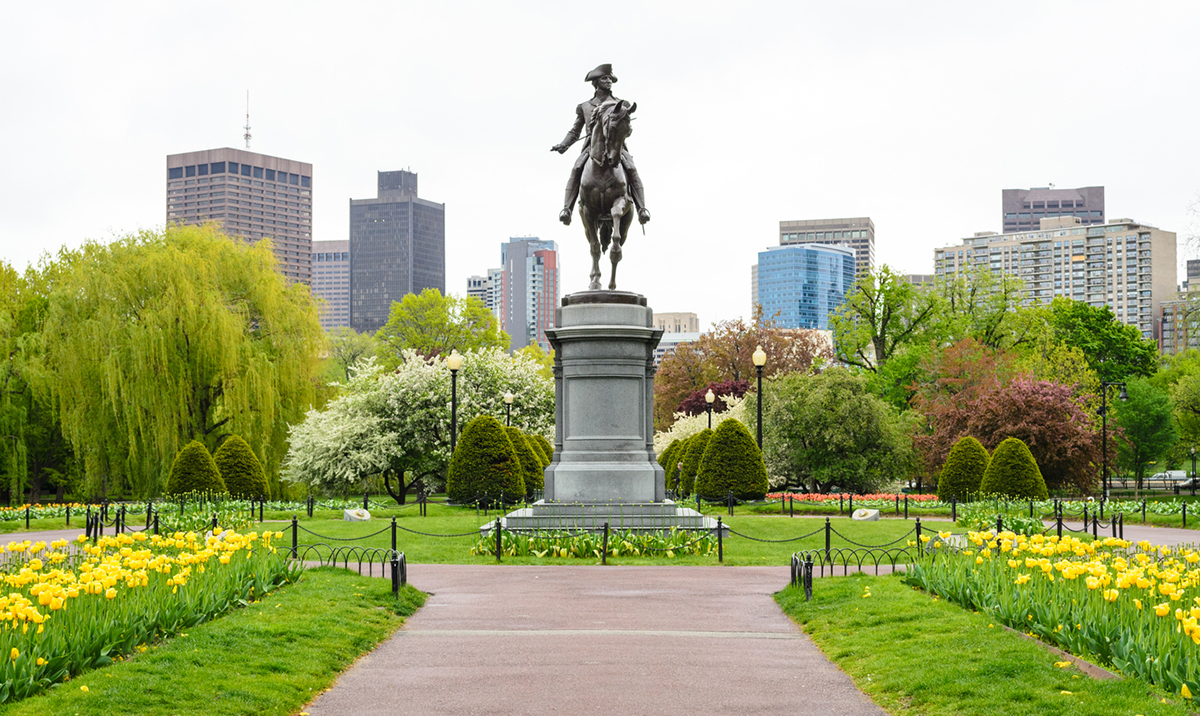Boston’s Women’s March May Be the Second Largest of the Day

Photo via ZRFPhoto/iStock.com
Yordanos Eyoel, one of the organizers for this Saturday’s Women’s March in Boston, was 13 when she immigrated to the U.S. from Ethiopia, but she didn’t decide to become a citizen until this fall.
Becoming a citizen was not something she took lightly because it meant giving up her Ethiopian citizenship. “Ethiopia is one of those unique countries that doesn’t offer dual citizenship status. It wasn’t an easy decision given that I still have a lot of family there, I grew up there, and I have a strong sense of identity that comes from that. But this election season, it became very apparent to me that I could no longer stay on the outside of the electoral process. I have always been politically informed and engaged, but it was very important to me to be able to vote,” Eyoel says.
In her work for the nonprofit New Profit, Eyoel continually works to empower underserved communities, and she felt very responsible in this election to represent those who weren’t, for a variety of reasons, able to vote. And although she still feels very privileged that she was able to cast her ballot, her excitement at the opportunity quickly turned to dread when the outcome didn’t go her way.
“After the election, I was very disappointed, but it was clear to me that I needed to continue to stay engaged. I wasn’t going to wait until the next election cycle to become active in my community,” she says.
She wasn’t alone in her impatience. Almost immediately after the election, she joined a group of activists and community organizers. One woman in the group, Mary Wallace, created a Facebook page that served as a call to action to organize a march in Boston. “And that was really the catalyst for the conversation,” says Eyoel. She immediately got to work building an infrastructure around the march to help it grow.
That original Facebook page has now led to the massive Women’s March happening this Saturday.
The Boston march joins more than 300 sister marches happening across the country, and the world, with an estimated, unprecedented, 500,000 participants worldwide. As of today, 37,000 people have said they will march in Boston, making it potentially the second largest march happening on Saturday. U.S. Senator Elizabeth Warren, Attorney General Maura Healey, and Mayor Marty Walsh will speak, and more than 85 community organizations have signed on as partners, including the Massachusetts Women’s Political Caucus, SEIU, Latino Circle, the Massachusetts Immigrant and Refugee Advocacy Coalition, and the Muslim Justice League.
“Our goal is to march in solidarity with communities most affected by hate, intolerance, and acts of violence being perpetrated across the nation. We want to stand for democracy and freedom for all,” Eyoel says.
Seeing the unprecedented response to the original call to action has only confirmed Eyoel’s decision to become a U.S. citizen. She says, “I have no regrets about the decision I made to become a citizen. I live in this country and it’s important for me to not only give back and stand for the values that I believe in, but also to be a part of a bigger movement that is looking to preserve democracy and freedom for all. There are so many people who have not been able to engage, and hopefully this will be a platform for them to get connected. If I can amplify the voices of those who are politically disenfranchised, that’s all I can hope for.”
Boston’s Women’s March will take place Saturday, January 21, beginning at 11 a.m. at the corner of Beacon and Charles Streets near the Boston Common. It will be a mile and a half walk and there is a team of organizers working with the city to ensure it will be a safe event. For more information, visit bostonwomensmarchforamerica.org.

